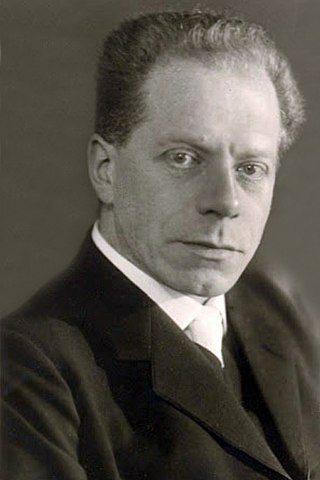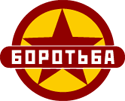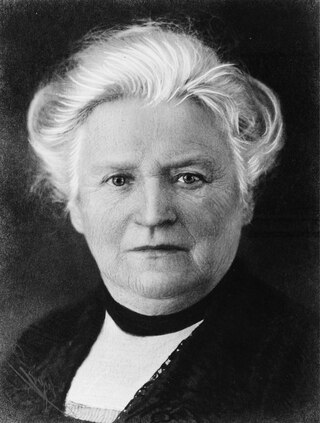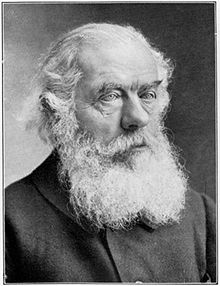
Leonard Nelson, sometimes spelt Leonhard, was a German mathematician, critical philosopher, and socialist. He was part of the neo-Friesian school of neo-Kantianism and a friend of the mathematician David Hilbert. He devised the Grelling–Nelson paradox in 1908 and the related idea of autological words with Kurt Grelling.

The Latvian Social Democratic Workers' Party is a social-democratic political party in Latvia and the second oldest existing Latvian political party after the Latvian Farmers' Union. It is not currently represented in the parliament of Latvia. The party tends to hold a less Russophilic view than fellow social-democratic party "Harmony".

Austrian Nazism or Austrian National Socialism was a pan-German movement that was formed at the beginning of the 20th century. The movement took a concrete form on 15 November 1903 when the German Worker's Party (DAP) was established in Austria with its secretariat stationed in the town of Aussig. It was suppressed under the rule of Engelbert Dollfuss (1932–34), with its political organization, the DNSAP banned in early 1933, but was revived and made part of the German Nazi Party after the German annexation of Austria in 1938.

Burg is a town of about 22,400 inhabitants on the Elbe–Havel Canal in northeastern Germany, 25 km (16 mi) northeast of Magdeburg. It is the capital of the Jerichower Land district in the state of Saxony-Anhalt.

The Young Communist League of Germany was a political youth organization in Germany.

Anton Emil Hermann Saefkow was a German Communist and a resistance fighter against the National Socialist régime. He was arrested in July 1944 and executed on 18 September by guillotine.

"Same Old Lang Syne" is a song written and sung by Dan Fogelberg released as a single in 1980. It was also included on his 1981 album The Innocent Age. The song is an autobiographical narrative ballad told in the first person and tells the story of two long-ago romantic interests meeting by chance in a grocery store on Christmas Eve. The song peaked at #9 on the Billboard Hot 100 Chart and is now frequently played during the holiday season and alongside traditional Christmas songs.

Hermann Henselmann was a German architect most famous for his buildings constructed in East Germany during the 1950s and 1960s.
Hermann Poppelbaum Dr. Phil. (1891–1979) was an anthropologist, psychologist, philosopher, anthroposophist, teacher and author.

Hermann Ehlers was a German politician. He was the 2nd President of the Bundestag from 19 October 1950 to 29 October 1954.
Billy Greulich-Smith is an English footballer who plays for Shildon.
The Kienthal Conference was held, in the Swiss village of Kienthal, between April 24 and 30, 1916. Like its 1915 predecessor, the Zimmerwald Conference, it was an international conference of socialists who opposed the First World War.

The Lübeck Martyrs were three Roman Catholic priests – Johannes Prassek, Eduard Müller and Hermann Lange – and the Evangelical-Lutheran pastor Karl Friedrich Stellbrink. All four were executed by beheading on 10 November 1943 less than 3 minutes apart from each other at Hamburg's Holstenglacis Prison. Eyewitnesses reported that the blood of the four clergymen literally ran together on the guillotine and on the floor. This impressed contemporaries as a symbol of the ecumenical character of the men's work and witness. That interpretation is supported by their last letters from prison, and statements they themselves made during their time of suffering, torture and imprisonment. "We are like brothers," Hermann Lange said.
During the First World War there were three conferences of the Socialist parties of the non-belligerent countries.
International Workers' Olympiads were an international sporting event arranged between 1925 and 1937 by Socialist Workers' Sport International (SASI). It was an organisation supported by social democratic parties and International Federation of Trade Unions. Workers' Olympiads were an alternate event for the Olympic Games. The participants were members of various labor sports associations and came mostly from Europe. Nowadays the CSIT World Sports Games are the successor sports events of the International Workers' Olympiads. The "World Sports Games" is the main highlight and a new brand of the International Workers and Amateurs in Sports Confederation (CSIT). It is a sports event for thousands of workers and amateurs held every two years. The CSIT is an international multi-sports organization.

The Association "Struggle" was a left-wing organization operating in Odesa, Kharkiv, Kyiv, and Dnipro in Ukraine.

The Basel Congress of 1869 is the common name assigned to the 4th General Congress of the International Workingmen's Association (IWA), commonly known as the First International. The meeting was held in the city of Basel, Switzerland from September 6 to 12, 1869 and was attended by 75 delegates, representing the socialist and labor movements of United States, England France, Belgium, Germany, Austria, Switzerland, Italy, and Spain.
Albert Steck was a Swiss politician and co-founder of the Social Democratic Party of Switzerland.
Greulich is a surname of German origin. Notable people with the surname include:

Verena Conzett was a Swiss magazine publisher, labor activist, and women's rights activist. She became the first president of the Swiss Women Workers' Union in 1890. Her own experience as a child factory worker led to her lifelong advocacy for insurance protection and shorter working hours. Following the death of her husband in 1897, Conzett took over his print shop, narrowly escaping bankruptcy. A decade later, she acquired a Linotype typesetting machine and expanded the business into the Conzett & Huber publishing house. In 1908, Conzett launched the illustrated magazine In freien Stunden, and established herself as a successful entrepreneur. Subscriptions to the magazine included accident insurance, which had not yet been mandated by law in Switzerland. Her autobiography, Erstrebtes und Erlebtes, was first published in 1929. Now in its third edition, it has been called "the longest and most literate" of the autobiographies of late 19th-century working-class women written in German. Verena-Conzett-Strasse in Zürich is named after her.













